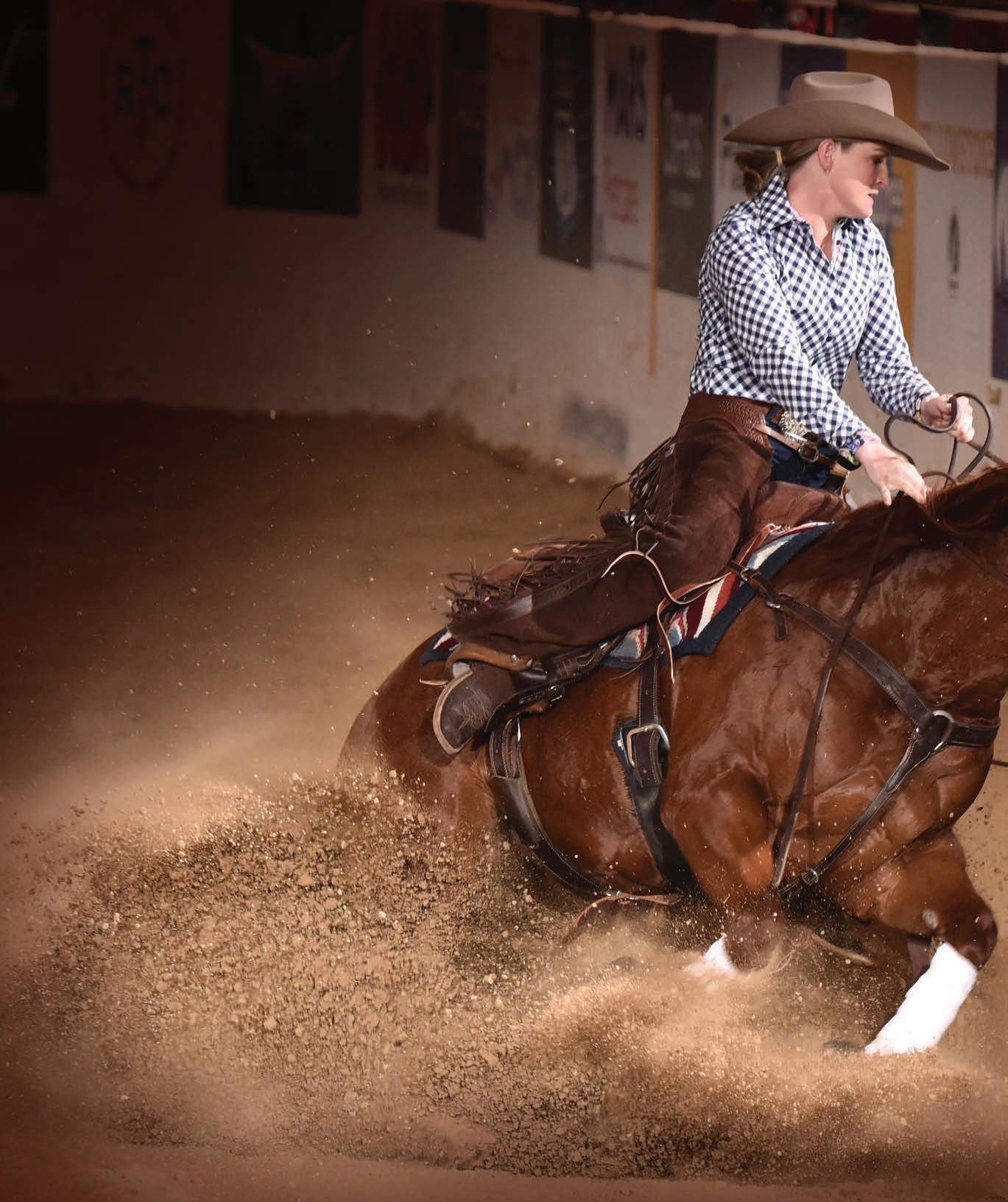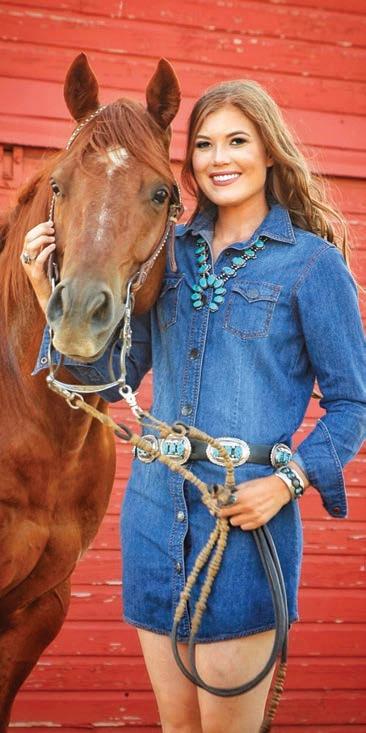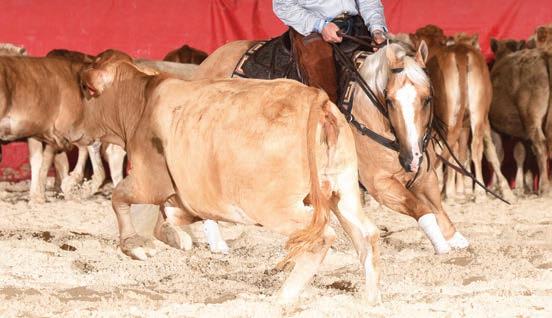///////// MEMBER ROUNDUP
FACES OF THE NRCHA
Interview and photograph by Kate Bradley Byars
Bill Enk began his horse career as a trainer, but today he’s best known for leading cow horse judges. Reined Cow Horse News: How does someone become director of As Director of Judges, Bill Enk spends his time scoring more reined cow horse runs than making one himself. However, that was not always the case. The native Californian aspired to be a horse trainer when he developed a deep love for horses. “I’ve always had a love for horses. Genetically, I came with it,” Enk said. “My brother has never liked horses; he’s a car guy. My grandfather was a farmer in Wisconsin, Bill Enk serves as NRCHA’s director of judges. and he used horses on the farm. We’d always go back in the summer. He had the gene, my mom had the gene and I got it, that affection for horses. My whole life has been fashioned around horses.” At age 7, after school, Enk rode his bike to a local stable in Long Beach, California, and saddled horses the stable rented for rides. He then was able to ride himself on Friday nights. His family moved close to Los Alamitos Racetrack in Los Alamitos, California, and Enk soon found himself riding five miles by bike at 4 a.m. before school to hot walk racehorses, clean stalls and occasionally gallop a horse. At the racetrack he met Ronnie Richards, an NRCHA Hall of Fame trainer, who kickstarted Enk down the cow horse trail. Following his service in the U.S. Army, Enk worked for Richards and became involved in horse judging. “At that time, the American Horse Shows Association was the big deal. I got a card with them. I’ve judged everything, 4-H, you name it,” Enk said. “I learned to judge at the bottom, and that is how you learn to be a judge, when you can place a class with no really good ones. Then, I got the reined cow horse card.” It’s been quite the evolution for Enk from junior judging to his current position. He has judged the Snaffle Bit Futurity®, the American Quarter Horse Association World Championship Show, Road to the Horse and many other premier events. Today, the horseman, from Paso Robles, California, oversees the NRCHA’s five-judge system, and he also developed the association’s current score sheets.
54 MAY/JUNE 2021 | REINED COW HORSE NEWS
judges? Bill Enk: I didn’t start out to be director of judges; I am a horse trainer. But it is hard to do both a lot. Pretty soon, it took over! I found out I have a passion for it. I have a passion for the teaching, more than I ever thought. My mom was a schoolteacher and I must have got it for her. I enjoy the camaraderie of the Judge’s Room and the making it better, like talking through a run or coming up with score sheets that make more sense. Stuff like that piqued my interest. And here I am. It’s been a good, fun run and I am not done.
RCHN: What do you enjoy most about your job? Enk: I enjoy the locker room, like they say in sports. I like the team of judges and seeing them come together. When I’m explaining a rule interpretation, I like to see them learn and be interested. I want them to succeed. The scores come together and we get it right [by judging] the finals, that is what I really enjoy. RCHN: What is the biggest challenge facing a horse show judge
today? Enk: To be able to put the outside influences aside and rely on the team and the process. The other challenge is to make sure you rely on the facts and document your facts in the run, then it allows for the opinion. You can’t have an opinion on the run that isn’t documented by facts. You have to put all your friendships and prejudices and the crowd noise aside. That is very, very hard but the better judges can do that. One of the reasons why [the NRCHA] is growing and we are successful is because the judging is fair. If you have a good run, you get a good score and then let the chips fall where they may.
RCHN: Why does the NRCHA uses a five-judge system? Enk: The five-judge [system] takes the three scores in the middle, which is really what the run is worth and they are usually real close together. The high and low [scores] are tossed out. The middle is where the run really lies for content and score. There is a lot of difference between a 71 and a 74. With a four judge, you only throw out the low, then one person dictates the judging. One person can taint the judging, but you can’t do that with the five judges. It takes care of ensuring we have a fair score.





















